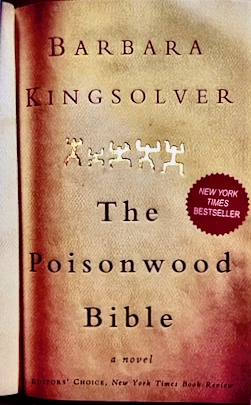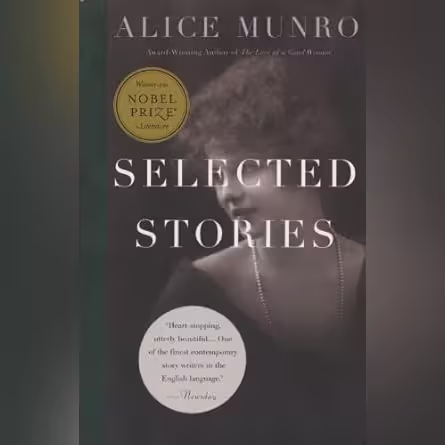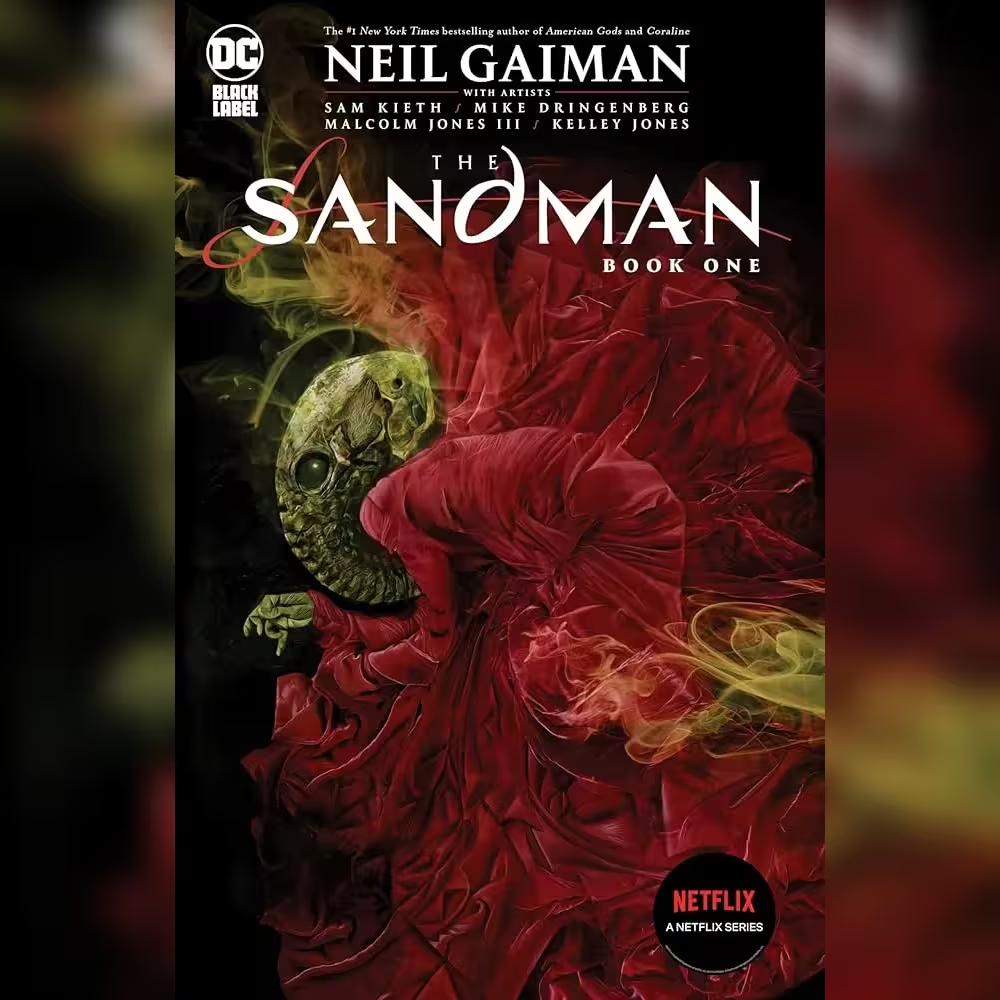This book review of The Poisonwood Bible by Barbara Kingsolver is part of my Amazon 100 Books to Read in a Lifetime Reading Quest.
This post pay contain affiliate links, which means that I may receive a commission if you make a purchase using these links. As an Amazon Associate I earn from qualifying purchases. Thanks for helping to support the content on this site.

The Poisonwood Bible
- Author: Barbara Kingsolver
- Genre: Fiction, Historical Fiction
- Publisher: Harper Perennial Modern Classics
- Pages: 546 pages, Paperback
Everything you’re sure is right can be wrong in another place.
Barbara Kingsolver, The Poisonwood Bible
Have you ever read a book that lingered in your mind, but not necessarily in a good way? That was my experience with The Poisonwood Bible by Barbara Kingsolver. The novel is ambitious, tackling big themes like colonialism, family, religion, and the clash of cultures. It’s the kind of book you pick up expecting to be blown away—or at least deeply moved. And yet, for all its ambition and heavy subject matter, it left me feeling… underwhelmed.
So why write about it at all? Because I believe that even when a book doesn’t exactly hit the mark, it can still teach me something—about storytelling, about myself, and about the world. For me, The Poisonwood Bible is worth discussing because it’s so close to being great, but just didn’t hit for me.
Plot Summary
The Poisonwood Bible is the story of a missionary family—the Prices—who move from Georgia to the Congo in 1959. Nathan Price, the patriarch, is a fire-and-brimstone preacher determined to bring Christianity to a small Congolese village. He drags his wife, Orleanna, and their four daughters—Rachel, Leah, Adah, and Ruth May—into this world, where they face cultural misunderstandings, environmental challenges, and the consequences of Nathan’s hubris.
The narrative alternates between the perspectives of the Price women, each of whom offers a unique view of their family’s unraveling and their struggle to adapt to life in a place so unlike home. The story is set against the backdrop of Congo’s fight for independence, so there’s a lot of historical weight to the plot. Kingsolver clearly aims to connect the personal and political, showing how the actions of one family are shaped by—and, in turn, shape—a much larger story.
My Review
Okay, so let’s start with the good stuff. Barbara Kingsolver’s writing? Straight-up gorgeous. She’s got this way of painting these crazy vivid pictures, whether it’s the thick, humid jungle or a character’s quiet pain. There were a few times I had to stop and reread a sentence, like, “Wow, that’s good.” And the whole multi-narrator thing? Pretty cool idea—it gives the story this extra layer you probably wouldn’t get with just one perspective.
But then… things kinda fall apart. The whole “different narrators” thing sounds awesome in theory, but in practice? Eh. They just didn’t feel distinct enough. Yes, Rachel’s voice is shallow and all about herself, and Leah’s is super earnest and deep-thinking, but their inner thoughts? To me they blurred together way too much. And then there’s Adah—her chapters are all palindromes and riddles, which sounds clever, but honestly? It just felt gimmicky to me. At some point, it stops feeling like storytelling and more like a writing exercise that just dragged on way too long.
Pacing
Let’s talk about the pacing. At over 500 pages, this book feels like such a slog sometimes. Kingsolver spends so much time setting the scene or drilling in her themes that the actual plot kinda gets lost. And, mind you, I don’t mind a slow-burn story, but this one? It just felt way too repetitive for me. I definitely caught myself skimming through parts or my mind wandered more easily than usual to what’s for dinner or some chore I hadn’t completed.. I just felt like I was constantly waiting for something—anything—to actually happen.
Overly Flawed Character
And there there’s Nathan Price. Ugh. He felt almost like a cartoon villain—the overbearing, tyrannical preacher with zero redeeming qualities. Sure, I get that he’s supposed to represent Western arrogance and the perils of blind faith, but he’s so one-dimensional it’s just disappointing there couldn’t be a more well-rounded character formation there. I just didn’t feel like he was real. I’m not trying to say he should or shouldn’t be empathized with – just that he felt the least developed to me. Of all the characters he was the only one that just felt like a symbol, not a person.
Tone
And then finally the tone. Man, it’s heavy. Yes, I get why—it’s dealing with some big, serious stuff. But I just wanted some kind of relief–and for me, I never got it. No humor, no light moments to balance it out. It’s just heavy, all the time. By the end, I felt emotionally drained, and not in a good way.
Who Should Read This
If you’re into literary fiction that dives into big, heavy topics, this might be your thing. Readers who love layered stories and super-detailed writing will probably enjoy it. But if you’re someone who needs a faster plot or characters you can really connect with, this might just frustrate you.
Fair warning: it’s a pretty heavy read. It deals with stuff like death, suffering, colonialism, and culture clashes. Plus, there’s some strong critique of Christianity and Western influence in Africa, which could be a little uncomfortable for some people. I’d say it’s best for older teens and adults who are ready to take on something with a lot of serious themes.
Parting Thoughts
At the end of the day, The Poisonwood Bible is one of those books I respect more than I actually liked. Barbara Kingsolver’s obviously a super talented writer, and she’s got something important to say, but for me, the execution just didn’t hit. The story dragged, the characters felt kinda flat, and the tone was just way too heavy to really draw me in.
That being said, I totally get why so many people love this book. It’s big, ambitious, and makes you think about stuff like privilege, power, and cultural arrogance. Even though it wasn’t really my thing, I’d still say give it a shot—who knows, you might feel totally different.
So, what about you? Have you read The Poisonwood Bible? Did it blow you away, or were you, like me, left kinda underwhelmed? Let’s chat!
Other Books You Might Enjoy
About the Author
Barbara Kingsolver is an American author known for her thought-provoking novels and essays. She was born on April 8, 1955, in Annapolis, Maryland, and grew up in rural Kentucky. Kingsolver studied biology at DePauw University and later earned a master’s degree in ecology from the University of Arizona. Her background in science heavily influences her writing, which often explores themes like environmentalism, social justice, and cultural identity. Her breakthrough novel, The Bean Trees (1988), earned critical acclaim and set the stage for a successful career. She won the Orange Prize for Fiction in 2010 for The Lacuna and was named a finalist for the Pulitzer Prize for Fiction in 2013 for Flight Behavior. In 2022, she won the Pulitzer Prize for Demon Copperhead, a retelling of David Copperfield set in Appalachia. Known for her activism, Kingsolver uses her work to highlight issues like poverty and human rights.
Reading Details
Start date: September 12, 2024
Finish date: September 14, 2024


